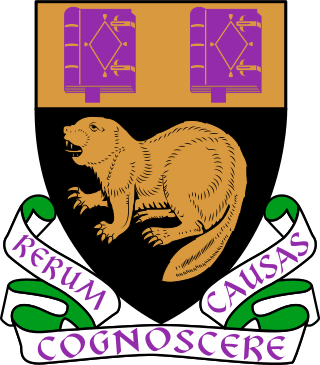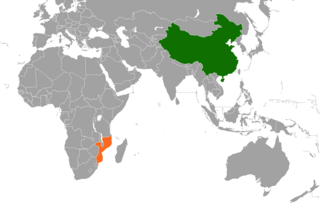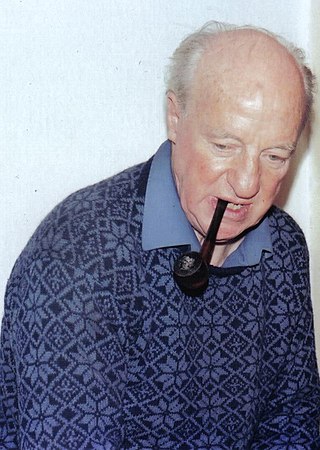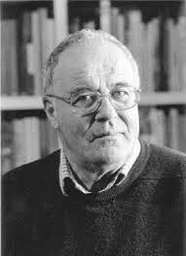Related Research Articles

The London School of Economics and Political Science (LSE) is a public research university in London, England, and a member institution of the University of London. The school specialises in the social sciences. Founded in 1895 by Fabian Society members Sidney Webb, Beatrice Webb, Graham Wallas and George Bernard Shaw, LSE joined the University of London in 1900 and established its first degree courses under the auspices of the university in 1901. LSE began awarding its degrees in its own name in 2008, prior to which it awarded degrees of the University of London. It became a university in its own right within the University of London in 2022.

International Relations is an academic discipline. In a broader sense, the study of IR, in addition to multilateral relations, concerns all activities among states—such as war, diplomacy, trade, and foreign policy—as well as relations with and among other international actors, such as intergovernmental organizations (IGOs), international nongovernmental organizations (INGOs), international legal bodies, and multinational corporations (MNCs).

The Central University of Finance and Economics (CUFE) is a public finance and economics university located in Beijing, China. Affiliated with the Ministry of Education of China, the university is co-sponsored by the Ministry of Education, the Ministry of Finance, and the Beijing Municipal People's Government. The university is part of the Double First-Class Construction and Project 211.
Harold J. Noah was an American educator, whose research and writing have focused on comparative education and economics of education. He was born in London, England, and moved to the United States in 1958. His higher education began at the London School of Economics and King’s College, University of London, and was followed by a Ph.D. at Teachers College, Columbia University. He served as Professor at Teachers College, Columbia, from 1964 to 1987. He was appointed to the Gardner Cowles chair in economics of education. He served as Dean of the College from 1976 to 1981. He is widely recognized as a distinguished authority in the field of comparative education.

China–Mozambique relations date back to the 1960s, when China began to support the struggle of Mozambique's Marxist-oriented FRELIMO party against Portuguese colonialism. Diplomatic relations were formally established on 25 June 1975, soon after Mozambique gained independence from Portugal. In November 2006, Mozambique became the thirteenth African country to be added to China's official list of tourism destinations.

Tom Burns FBA (1913–2001) was an English sociologist, author and founder of the Sociology department at Edinburgh University.
David Lewis is a British scholar who is Professor of Anthropology and Development at the London School of Economics and Political Science (LSE).
Mark Bray is the Chair Professor of Comparative Education in the Comparative Education Research Centre (CERC) at the University of Hong Kong.

The International Growth Centre (IGC) is an economic research centre based at the London School of Economics, operated in partnership with University of Oxford's Blavatnik School of Government.
The LSE–Gaddafi affair was a scandal in the United Kingdom that occurred as a result of relationship that existed between the London School of Economics (LSE) and the Libyan government and its leader Muammar Gaddafi and his son Saif al-Islam Gaddafi.

Keith M Lewin is a British Professor of International education and Development at the University of Sussex and Director of the Consortium for Research on Educational Access, Transitions and Equity (CREATE). He is known for his work in educational planning, economics and finance of education, teacher education, assessment, science and technology education policy in developing countries, educational aid and program evaluation. He has been adviser to various governmental, multilateral and non-profit organisations on education planning and policy, including the World Bank, DFID, UNESCO International Institute for Educational Planning, UNICEF, UNDP, AusAID and others. His country experience includes projects in Ghana, Rwanda, Uganda, Kenya, Tanzania, Malawi, South Africa, Zimbabwe, Mauritius, Trinidad and Tobago, Barbados, India, Sri Lanka, Bangladesh, Malaysia, and China.
Masahiko Aoki was a Japanese economist, Tomoye and Henri Takahashi Professor Emeritus of Japanese Studies in the Economics Department, and Senior Fellow of the Stanford Institute for Economic Policy Research and Freeman Spogli Institute for International Studies at Stanford University. Aoki was known for his work in comparative institutional analysis, corporate governance, the theory of the firm, and comparative East Asian development.
Chinese foreign aid may be considered as both governmental (official) and private development aid and humanitarian aid originating from the People's Republic of China (PRC).
The British Association for International and Comparative Education (BAICE) is a learned society in the United Kingdom dedicated to promoting teaching, research, policy and development in all aspects of international and comparative education. It is a member of the Academy of Social Sciences. The association runs an academic journal, Compare.
The African Studies Association of the United Kingdom (ASAUK) formed in 1963 "to advance African studies, particularly in the United Kingdom, by providing facilities for the interchange of information and ideas and the co-ordination of activities by and between persons and institutions concerned with the study of Africa." Antony Allott and Roland Oliver led the founding of the group. In recent times the Royal African Society administers the association.

John David Yeadon Peel was a British Africanist, sociologist and historian of religion in Africa, particularly Nigeria. He was most notable for his series of major studies of historical patterns of religious belief among the Yoruba people.
John M. Lonsdale is a British Africanist and historian. He is Emeritus Professor of Modern African History at the Centre of African Studies in the Faculty of History at the University of Cambridge. He is a Fellow of Trinity College there. As a schoolboy, he spent three summer holidays during 1953-1956 in Kenya where his father had just taken a job. He read history at Cambridge from 1958 through 1964. In 1956 he started his national service as a subaltern in the King's African Rifles. His first teaching job was in Dar es Salaam in 1964. Lonsdale studied the modern history of Kenya extensively and won the Outstanding African Studies Award of the African Studies Association of the United Kingdom in 2006.
Insa Nolte is an Africanist and Professor of African Studies in the Department of African Studies and Anthropology at the University of Birmingham. She obtained a first degree in Economics from the Free University of Berlin (FUBerlin) and graduated from the University of Birmingham with a PhD thesis on the history and politics of Ijebu-Remo, the regional base of the Nigerian Nationalist politician Obafemi Awolowo. After a Kirk-Greene Junior Research Fellowship at St Antony's College, Oxford, she became Lecturer in African Studies at Birmingham University in 2001. She has been Head of Department since 2018. Her research focuses on Yoruba history, culture and politics. Nolte was a president of the African Studies Association of the United Kingdom from 2016 to 2018.
Martina Viarengo is a professor of international economics at the Graduate Institute of International and Development Studies of Geneva, Switzerland and a principal investigator of the Swiss National Center for Competence in Research. She is a specialist in public policy, labor economics and economic development. Her research focuses on labor markets, comparative education policy and international migration.
References
- ↑ Professor Kenneth King - LSE Africa Insights on YouTube. Video duration 4m:51s. Kopfadeyemi Fellowship, 16 May 2016. Insights from the Research Conference of the LSE Africa Summit 2016.
- 1 2 "Kenneth King Professor Emeritus". sps.ed.ac.uk/staff. University of Edinburgh School of Social and Political Science. Retrieved 9 September 2022.
- ↑ "Kenneth King, The University of Edinburgh, Centre for African Studies (CAS) BA Classical Tripos (Cantab); PGCE (Institute of Education, London); PhD Edinburgh Publications (167)". researchgate.net. Retrieved 9 September 2022.
- ↑ Bray, Mark (2019). Foreword, in: Kenneth King: Education, Skills and International Cooperation : Comparative and Historical Perspectives. CERC studies in comparative education 36. Hong Kong, China: Springer Comparative Education Research Centre, The University of Hong Kong. pp. 1–10.
- ↑ "Outstanding African Studies Award". www.asauk.net/awards-prizes. African Studies Association of the United Kingdom. Retrieved 9 September 2022.
- ↑ "King, Kenneth J." Worldcat.org. OCLC . Retrieved 5 October 2024.
- ↑ Morgan, W. John (May 28, 2014). "Review Article: China's Aid & Soft Power in Africa: The Case of Education and Training. In Handbook of Education in China" . Retrieved 9 September 2022.
- ↑ Batchelor, Kathryn; Zhang, Xiaoling, eds. (26 June 2017). "6. Confucius Institutes in Africa. Culture and language without controversy?". China-Africa Relations: Building Images Through Cultural Co-operation, Media Representation, and Communication. Taylor & Francis. ISBN 978-1-351-85806-9.